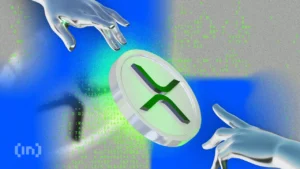Decentralizing Social Media: Can Web3 Empower Users?

[ad_1]
Decentralizing social media has the potential to revolutionize the industry by empowering users and promoting free speech, but it also comes with its own set of challenges.
The rise of social media has completely transformed how we communicate and interact online, with over five billion daily active users worldwide. However, centralized social media platforms have been criticized for handling user data despite their success, as evidenced by the Cambridge Analytica scandal. In recent years, decentralizing social media has gained significant momentum as a potential solution to the centralization, censorship, and data handling issues plaguing social media platforms.
Empowering Users and Creators through Ownership: The Promise of Decentralization
Decentralization has the potential to empower users by giving them greater control over their data and privacy. By allowing users to own their data, decentralization can offer a viable solution to the growing demand for privacy and data protection. Additionally, decentralization can prevent power concentration in a few entities’ hands, promoting free speech and reducing censorship.
Decentralized social media platforms are a critical component of the future vision of Web3. Currently, social media users spend an average of 2.5 hours per day scrolling through content without receiving any compensation. However, by tokenizing content and marking ownership, Web3 can create an economy that benefits all ecosystem participants and distributes wealth across industry participants.
However, decentralization also has its drawbacks. The biggest concern is the potential for misinformation to spread more easily without a centralized entity to regulate content. Additionally, decentralization can lead to further fragmentation and isolation of communities, with limited exposure to diverse perspectives.
Ultimately, the debate around whether Web3 can truly empower users or whether stricter regulations are necessary to prevent the spread of harmful content is ongoing. Recently, Elon Musk highlighted that Twitter could be run with just a handful of team members while easing censorship and eliminating most manual content approvals. Still, even with centralization, social media’s role in the spread of fake news has been significant, and measures to address this issue will continue to evolve.
“As Web3 continues to evolve, it’s crucial that we work towards creating a more inclusive and diverse online community.”
In conclusion, the application of blockchain technology and decentralization is a crucial conversation about the future of social media. While it can potentially transform how we interact online, decentralization comes with its own challenges. Regardless, Web3 will revolutionize the industry, and social media will be one of the most significant beneficiaries.

(L-R) Vugar Adigozalov – Chief Marketing Officer, BE[IN]CRYPTO, Michelle Maiuri – Marketing & Growth Director, Deepcoin, Marcin Rzetecki – Managing Director, Polish Blockchain Association, Ripul Mahajan – CEO, Cillionaire.
Disclaimer
In compliance with the Trust Project guidelines, this opinion article presents the author’s perspective and may not necessarily reflect the views of BeInCrypto. BeInCrypto remains committed to transparent reporting and upholding the highest standards of journalism. Readers are advised to verify information independently and consult with a professional before making decisions based on this content.
[ad_2]
Source link










